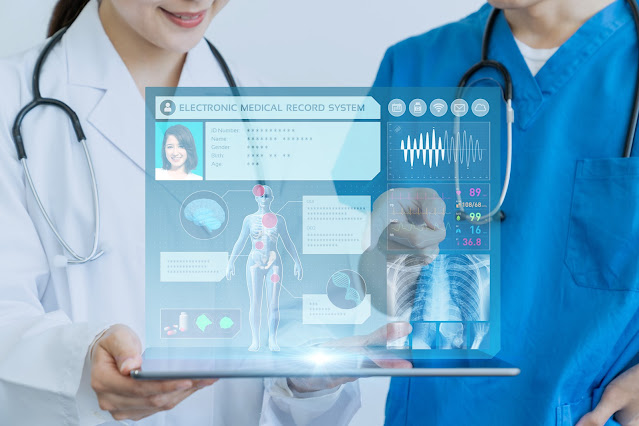Integration of Internet of Things (IoT) in the Drug Device Combination Product Market Industry

Drug Device Combination Product Market
The integration of the Internet of Things (IoT) in the Drug Device Combination Product Market Industry has the potential to revolutionize patient care, enhance treatment outcomes, and transform healthcare delivery. IoT refers to the network of interconnected devices that collect and exchange data through the internet. When applied to drug device combination products, IoT enables real-time monitoring, remote patient management, and data-driven insights that can greatly improve the effectiveness and efficiency of healthcare.
One of the key benefits of IoT
integration in the industry is remote patient monitoring. Connected drug device
combination products equipped with sensors and connectivity capabilities can
collect patient data, such as vital signs, medication adherence, and symptom
tracking. This data is transmitted in real-time to healthcare providers,
enabling them to monitor patients remotely and make timely interventions.
Remote monitoring can improve patient outcomes, reduce hospital readmissions,
and enhance patient engagement in their own care.
Furthermore, IoT integration
enables personalized medicine and treatment optimization. With the ability to
collect and analyze vast amounts of patient data, IoT devices can provide
insights into individual patient characteristics, treatment responses, and adherence
patterns. This information allows healthcare providers to tailor therapies,
adjust dosages, and optimize treatment plans to meet the specific needs of each
patient. Personalized medicine leads to more effective treatments, reduced side
effects, and improved patient satisfaction.
According to Coherent Market
insights the Global
Drug Device Combination Product Market is estimated to be valued
at US$ 150.23 billion in 2023 and is expected to exhibit a CAGR of 7.6% during
the forecast period (2023-2030).
IoT also facilitates proactive
healthcare management through predictive analytics. By leveraging machine
learning algorithms and predictive modeling, IoT devices can identify patterns,
detect early warning signs, and predict disease progression. This proactive
approach enables healthcare providers to intervene before adverse events occur,
thereby preventing complications and improving patient outcomes. Predictive
analytics can also support population health management by identifying
high-risk groups, enabling targeted interventions, and optimizing resource
allocation.
Another aspect of IoT integration
is the seamless connectivity and interoperability of devices and healthcare
systems. IoT-enabled drug device combination products can seamlessly integrate
with electronic health records (EHRs), telehealth platforms, and other
healthcare systems. This integration streamlines data exchange, facilitates
communication between healthcare providers, and ensures that relevant
information is readily accessible at the point of care. It enhances care
coordination, reduces medical errors, and improves overall efficiency in
healthcare delivery.
According to Coherent Market
insights the Middle
East and Asia Injectable Drugs market is estimated to be valued
at US$ 4,15,000 million in 2021 and is expected to exhibit a CAGR of 8.2% over
the forecast period (2021-2028).
However, with the integration of
IoT comes the need for robust cybersecurity measures. As connected devices
transmit sensitive patient data, ensuring the privacy and security of this
information becomes paramount. Industry stakeholders must implement stringent
cybersecurity protocols, such as data encryption, secure networks, and regular
vulnerability assessments, to safeguard patient data and maintain patient
trust.
In conclusion, the integration of
IoT in the Drug Device Combination Product Market Industry offers numerous
benefits, including remote patient monitoring, personalized medicine, proactive
healthcare management, and seamless connectivity. By harnessing the power of
IoT, healthcare providers can deliver more precise and effective treatments,
improve patient outcomes, and transform the way healthcare is delivered.
However, it is crucial to address cybersecurity concerns to protect patient
data and ensure the safe and secure implementation of IoT in the industry.



Comments
Post a Comment